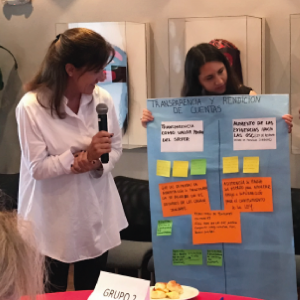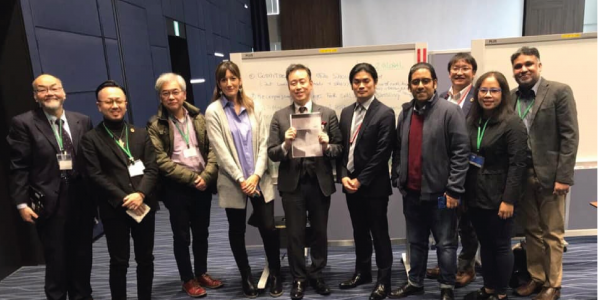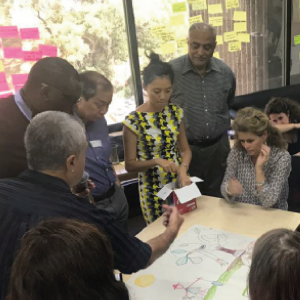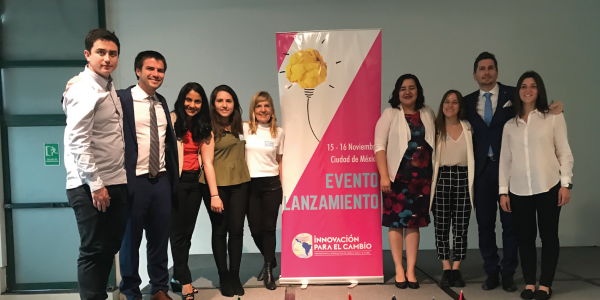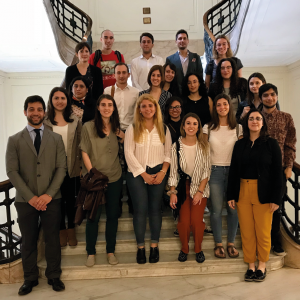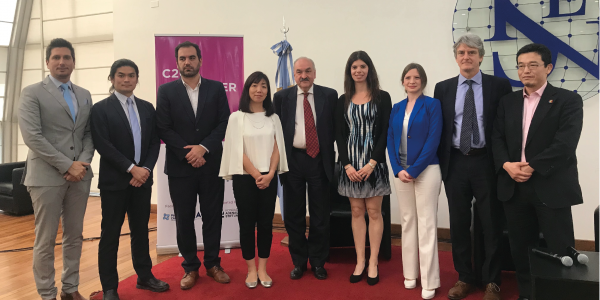We are facing the age of “digitalization”, a process in constant expansion that includes and modifies more and more areas and fields – being the most prominent and well-known the transformation of financial and capital markets. The impact of digitalization in these markets, without a doubt, is easy to detect. For example, it is proven that digital financing could increase the GDP of emerging economies by USD$3.7 billion by 2025.
However, when we speak of the Sustainable Development Goals (SDGs) and the objectives of the Paris Agreement over climate change, it becomes more difficult to find answers to the many questions that arise around how to take advantage of this technological disruption in order to guarantee the proper financing of these objectives.
To tackle this issue, it was created the Task Force on Digital Financing, which not only seeks for the best way to make use of “digitalization” – specially in topics related to “digital finance” or Finetech – in order to finance the above mentioned objectives, but also seeks to catalyze the opportunities that arise around this and mitigate any type of risk associated with it.
FINETECH: digital potentials with real impacts
Finetech could help to ensure that funding decisions take into account more environmental and social externalities: from climate risk to community impacts and labor standards. A clear example is how crowdsourcing is used to finance, through the use of mobile payment systems, the distribution of solar technology, which becomes more accessible to the poorest communities.
However, the digitalization of finances can have serious disadvantages. Among them, it stresses the automatization of funding decisions, risking the systematic exclusion of the poorest borrowers or insurers, the most at risk or simply the unusual ones.
Like any new tool, it is necessary to think of all the externalities and consequences both positive and negative that can apply. Digitalization could increase the transparency of financial decisions, but it could also open new opportunities for illicit financial flows. Currently, it requires a process of analysis in order to promote positive impacts and reduce negative impacts.
How to advance towards financial digitalization with positive impacts?
To encourage the positive aspects and mitigate the disadvantages of digital financing, there will be needed policies, regulations and standards, together with the technology and innovation of the market. However, nowadays, the first generation of rules that govern digital finance relate principally to financial stability and consumer protection. Still, there is much to be done, especially in the area that relates finetech with sustainable development.
To finance the sustainable development: to understand and to improve finetech, an exercise for Digital Task Force on Financing
The Secretary General of the United Nations understands perfectly the importance of securing the funding for the 2030 Agenda. To do this, a strategy was formally launched to finance the 2030 Agenda in the 2018 General Assembly of the United Nations. The central pillar of the strategy is digital financing, followed by related areas of international finance and economic policy and support to member states in order to advance national plans to fund sustainable development. The SDG’s Task Force on Digital Financing is the vehicle that has been chosen to advance the understanding of this technology and take it into practice.
This group will work to address three basic questions over 18 months:
- What opportunity does the financial digitalization of different aspects of the 2030 Agenda offer?
- What barriers exist and how can we take advantage of the opportunities and possible inconveniences of digitalization? In what way and what means exist to overcome and mitigate them?
- Who should do what in the public and private sectors, where is action is needed, at both the local and international level (what should be the key roles for the UN itself)?
Beyond thinking, planning, and suggesting what can be done about SDG funding, the Task Force will search for a multitude of actors and diverse innovations that will keep the agenda going long after they have completed their own work.
Finetech will open many new ways to catalyze funding for the 2030 Agenda, and it will create challenges that will be needed to be addressed through collective action,n in order to achieve political objectives. The working group provides a unique opportunity to understand and shape these results as they arise before they are consolidated into new standards.
For more information, visit: https://www.brookings.edu/blog/future-development/2019/02/11/financing-sustainable-development-is-fintech-the-solution-problem-or-irrelevant/.

